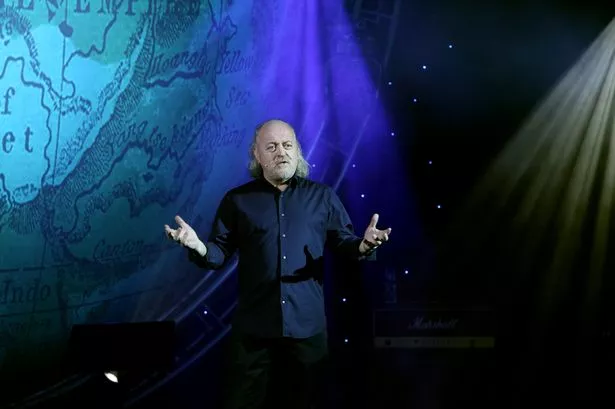A conversation with Paul Taylor involving several cups of tea, recipes for French crepes, our terrible rap skills, a funny old comedy song about English workmen drinking tea, some improvised comedy role plays and a very angry Paul ranting about bad customer service in France! Your challenge is to listen to this episode in public without laughing out loud, especially in the second half of the episode. Good luck, may the force be with you. Vocabulary list, song lyrics, definitions and a quiz available below.
![]()
[DOWNLOAD]
Episode Introduction (Transcript)
I’m going to keep this intro as brief as possible so we can get straight into it!
This one is a conversation with friend of the podcast, Paul Taylor. It was lots of fun to record, I hope it’s also lots of fun to listen to.
There are links, videos, word lists and song lyrics with vocabulary and definitions on the episode page on the website that can help you to understand and learn more English from our conversation.
There is some swearing in this episode – some rude words and things. Just to let you know in advance.
Try not to laugh on the bus while listening to this. That might be embarrassing. That is a challenge from me to you. Try not to giggle – because everyone will look at you and will feel either jealous or confused at your public display of the joy which will be bursting forth from your heart as you listen to Paul’s infectious laughter. No giggling or cracking up in public please. Get a grip on yourself for goodness sake.
Where’s Amber? All will be revealed.
Keep listening until the end of the episode for more additional extra bonus fun.
Alrighty then, that’s all for the intro, let’s go!
Vocabulary List
- A crepe = a thin french pancake made from flour, milk and egg – all whisked together and then cooked in a pan
- To whisk = to mix ingredients quickly with a fork or a whisk
- To knead dough to make bread
- To knead = to work/press/mix/fold dough with your hands when making bread
- Dough = flour, water, yeast combined to make a soft paste, used for making bread
- Cats go to the litter box, shit and then lick their paws
- The litter box = the tray or box in your house that cats use as a toilet. It’s full of small stones, sand or something similar.
- Paws = the hands and feet of a cat (or similar animals)
- The Luke’s English Podcast Challenge – if you don’t know what a crepe is, leave a comment! You *might* get a picture of Paul as a prize.
- Talking bollocks* = talking nonsense ( *bollocks is a rude word meaning testicles, or bullshit)
- ‘owzit gaan? = How’s it going?
- It’s the first day back at school in France so everyone’s going mental
- Going mental = going crazy, getting stressed
- Anti-nuclear pens? = I suppose these are pens which somehow resist the effects of a nuclear attack. They don’t exist, I think.
- https://www.youtube.com/watch?v=geEVwslL-YY
- Losing your friends when they have kids – How having kids is like the zombie apocalypse (according to Paul)
- “To put the kibosh on something” = phrase
If someone or something puts the kibosh on your plans or activities, they cause them to fail or prevent them from continuing.
[mainly US , informal]
E.g. “Rattray, however, personally showed up at the meeting to try and put the kibosh on their plans.”
“…software that puts the kibosh on pop-up ads if a user doesn’t want them.” - https://www.collinsdictionary.com/dictionary/english/put-the-kibosh-on
Origin: Unknown origin :) - I’ll be tutoring my child in the ways of righteousness
- A voice-over = some recorded speech used in advertising, TV, radio etc.
“Right said Fred” by Bernard Cribbins
A 1960s comedy record featuring some cockney workmen moving a heavy object and drinking lots of tea.
Lyrics [vocab explained in brackets]
“Right,” said Fred, “Both of us together
One each end and steady as we go.” [be careful, do it steadily]
Tried to shift it, couldn’t even lift it [move it]
We was getting nowhere [yes, it’s grammatically incorrect]
And so we had a cuppa tea and [ a cup of tea]
“Right,” said Fred, “Give a shout for Charlie.”
Up comes Charlie from the floor below.
After straining, heaving and complaining [making lots of physical effort] [complaining]
We was getting nowhere [also grammatically incorrect]
And so we had a cuppa tea.
And Charlie had a think, and he thought we ought to take off all the handles
And the things what held the candles.
But it did no good, well I never thought it would
“All right,” said Fred, “Have to take the feet off
To get them feet off wouldn’t take a mo(ment).” [those]
Took its feet off, even took the seat off
Should have got us somewhere but no!
So Fred said, “Let’s have another cuppa tea.”
And we said, “right-o.”
“Right,” said Fred, “Have to take the door off
Need more space to shift the so-and-so.” [the thing]
Had bad twinges taking off the hinges [sharp pains] [metal parts that attach the door to the wall]
And it got us nowhere
And so we had a cuppa tea and
“Right,” said Fred, “Have to take the wall down,
That there wall is gonna have to go.”
Took the wall down, even with it all down
We was getting nowhere
And so we had a cuppa tea.
And Charlie had a think, and he said, “Look, Fred,
I got a sort of feelin’
If we remove the ceiling
With a rope or two we could drop the blighter through.” [an annoying person or thing]
“All right,” said Fred, climbing up a ladder
With his crowbar gave a mighty blow. [a heavy metal tool]
Was he in trouble, half a ton of rubble landed on the top of his dome. [broken pieces of rock] [head]
So Charlie and me had another cuppa tea
And then we went home.
(I said to Charlie, “We’ll just have to leave it
Standing on the landing, that’s all [the hallway on an upper floor]
You see the trouble with Fred is, he’s too hasty [in a hurry, rushing ;) ]
You’ll never get nowhere if you’re too hasty.”)
- Getting queue jumped and dealing with unhelpful staff = when people skip ahead of you in a queue [a line of people waiting]
- Luke struggles to understand how to deal with waiters and shop assistants who say “c’est pas possible” (French = it’s not possible)
Listen to Alexander Van Walsum talk to Luke about how to deal with “c’est pas possible” in this episode from the archive
391. Discussing Language, Culture & Comedy with Alexander van Walsum
Were you listening carefully?
[os-widget path=”/lukethompson2/vocabulary-quiz-for-episode-484-try-not-to-laugh-on-the-bus” of=”lukethompson2″ comments=”false”]
Episode Outtro
That’s nearly the end of the episode, I hope you enjoyed it and you managed not to laugh out loud on the bus.
Don’t forget, you can see a list of vocabulary and expressions from this episode all on the website, including the lyrics to that song that you heard. There’s also a YouTube video of the song if you want to hear it again and make sure you’ve understood all of it. So check that out.
By the way, the mobile version of my site has now been improved thanks to a helpful listener called Sergei who gave me some CSS coding advice. So if you check the site on your phone now it should look much better than it did before, which will make it easier for you to check vocab lists, transcriptions and other content from your mobile device. Try it now – teacherluke.co.uk. You will find the link for this episode and all the others in the episode archive – just click on the menu button and then EPISODE ARCHIVE.
Don’t forget to join the mailing list on the website so you can get a link to each new episode page in your inbox when it’s published.
As I said, it’s nearly the end of the episode – but it’s not actually the end yet. There’s more. In fact, I’ve decided to give you a bonus bit at the end here, because I’m nice.
So, what’s the bonus bit?
The Bonus Bit – “The Expat Sketch Show”
On the day that Paul and I recorded this episode (and in fact the next one too) we also recorded ourselves improvising a short comedy sketch. I’m now going to play you that sketch.
The idea of the sketch is that I work in an office in Paris and my job is to interview ex-pats (foreign people who have moved to Paris) – I interview ex-pats for a position on a kind of scholarship programme where we subsidise their living expenses and help them integrate into the Parisian community and in return they contribute something to community in terms of work, taking part in cultural events or making any contribution that will benefit the cultural mix of Paris.
Paul plays 3 different ex-pats who have come into my office for an interview, and let’s just say that they’re not exactly the ideal candidates.
The whole thing was completely improvised, it’s full of rude language and it’s all just a bit of a laugh so here is the Ex-pat Sketch show with Paul. Have fun!
Thanks for listening to the episode everyone.
Have a good day, night, morning, afternoon or evening!
Luke
















